IC "BERTOLOTTI" GAVARDO - ITALY
A PC for students in need.pdf
A PC for students in need!!
Because of the pandemic emergency COVID-19, millions of students all over the world stayed at home. In our school “G. Bertolotti” in Gavardo in the north of Italy, some students did not have a device to follow online lessons, so our school took the initiative to supply Chromebooks as loan for use.
This action allowed students not to be excluded from the online activities and gave them the opportunity to learn although it was not possible to go to school.
It was easy to get a PC: parents had to send an email to the school director or fill in a Google form asking their children needed a computer for online lessons. All the students who asked for a PC received it by a few days. Parents had to come to school, sign a form and they immediately received a chromebook.
In Italy, the right to education is very important and thanks to this it was given the opportunity to all students, although they did not have a computer or other technological devices, to receive one and to take part in lessons.

A few years ago our school started to use the platform G-suite and “Classroom”, so during the pandemic emergency we were used to it and we were able to go on with distance education without great effort.

As students at secondary school, we think distance education was an experience to grow up, to learn to study in autonomy and an opportunity for the students who were sick (or in quarantine) to follow video lessons.
This period was useful to develop the computer skills too.
But there were some negative sides, for example, some students did not own a computer or other devices such as smartphones or tablets, others did not have wi fi connection at home and some were disturbed by family members (parents or younger brothers, sisters).
School is useful: we like to be able to talk with friends at school, we like to have contacts with the teachers and we like to study for the tests. All these things are part of our teens’ life and they are very important for us!
Marta, Marco and Cristian
OŠ "Đuro Ester" Koprivnica - Croatia
Predrasude među nama - istraživanje u OŠ Đuro Ester.docx
Predrasude među nama - rezultati istraživanja.pdf
PREJUDICE AMONG US - RESEARCH IN PRIMARY SCHOOL ĐURO ESTER.docx
SCHOOL RESEARCH
Prejudice among us
Prevalence of gender stereotypes and prejudice among young people
One can often hear that we live in a traditional, conventional, even conservative society. Ingrained beliefs and general opinions about individuals or specific groups of people are very common. These are prejudices conditioned by cultural and historical heritage as well as social and family circumstances. They are based on personal beliefs, not on proven facts. Simplified and often distorted opinions about certain people, situations, ideas or groups of people are stereotypes. The spread of stereotypes, which is often a result of our upbringing and the influence of the media, affects relationships.
Stereotypes and prejudice at school
Students at my school have experienced gender stereotypes and prejudice. Prejudices and stereotypes are often the cause of belittling and insults among students. Some students in my class say that boys are tough and strong while girls are gentle, emotional, demanding… Apart from disrupting relationships, gender stereotypes also prevent us from reaching our full potential. We often adapt to the role imposed on us and we do not try hard enough to develop our individual talents.
Research on prejudice among young people
On the occasion of International Human Rights Day a research on understanding the concepts of prejudice and stereotypes as well as their influence on attitude formation was conducted among the students at my school. 92 students aged 12 and 13 participated in the survey. The aim of the research was to determine whether the students are aware of gender stereotypes in our society and in the media and how they perceive stereotypes at school. Taking part in the survey was the chance for the students to analyse and re-examine their own beliefs and use the newly discovered awareness for possible changes in their beliefs and behaviour.
The questions in the first part of the survey referred to personal attitudes and beliefs. The majority of students (78 %) think that abilities do not depend on gender but on individual characteristics. However, the students' answers to the question about gender differences in intelligence revealed that some students are influenced by gender stereotypes. Some students think that men are more intelligent than women while almost half of the students consider women to be more emotional than men. Some students associate certain colours with gender (e.g. blue for boys, pink for girls). 36 % of the students say that girls talk more than boys while 30 % of the students partially agree with this statement. 18 % of the students say that boys are better mathematicians while 22 % of the students partially agree with this statement. Most of the students show certain divergence from stereotypical opinion when it comes to sports; 69 % of the students think that boys and girls can do sports they want to do or they enjoy doing although 13 % of the students believe that girls should not play rough sports and boys should not dance.
Influence of family and social environment on the creation of gender roles
In the second part of the survey the students could express their opinions on the social roles of men and women. 59 % of the students disagree with the division of household chores between men and women based on traditional gender roles, 17 % of the students say that they are neutral while almost 23 % of the students agree with the division because „everyone should know their place“. The students said that, on the one hand, they know more women who cook, vacuum, love shopping, express their feelings more often, get easily offended, have better grades at school while, on the other hand, they know more men who are better drivers, have good knowledge of technology, have more friends. The students' answers reflect the social roles that are considered to be appropriate for a person of a particular gender in our culture; women have been brought up to take care of the family and the household. They have been encouraged to freely express their emotions. Men, on the other hand, have been educated for technical jobs and they have had more free time for socializing and engaging in various activities. Family is considered to be the most influential social environment where gender stereotypes occur. Older family members have told 34 % of the students that girls should be beautiful, gentle, emotional, sweet, good, obedient while 27 % of the students say that older members of the family have told them that boys should not show emotions because „boys do not cry“. Students have also given examples of their personal experience with stereotypes: I wanted to play video games, but I was told that this was not for girls; every day my sister argues with our father about male-female chores; my grandpa told me that I should be tidy and learn to cook because I am a woman; my folks thought that I would not be good at sports because I am a girl; when I was little, I was told that I was a gypsy and that I was dirty.
The role of the media in the development of stereotypes and prejudice
The students think that the media (73 %) and social environment (56 %) have the greatest influence on creating stereotypes. Most of the students say that in the media girls are portrayed as gentle and emotional while boys are portrayed as video games fans, skilful and skilled. The students have also noticed that in the media women are portrayed as obsessed by men, fashion and looks, men are portrayed as enterprising, brave and adventurous while older people are often portrayed as uneducated and backward. These portrayals impose behaviour we should conform to as generally accepted. Most of the students think that women do not have equal rights and that women in science and politics are not perceived as serious and competent as men. The students could easily name three male scientists while only a few of them could name a female scientist.
We talked to our social pedagogue Mrs Dijana Lukačić about the influence of stereotypes and prejudice on interpersonal relationships. Since stereotypes and prejudice are omnipresent and affect all of us, it is important to recognize them. We should be aware that children are like sponges and everything they see or hear in their families at early age and later at school, their community and the media affects their behaviour, attitudes and opinion. In the same way they soak in stereotypes they are exposed to – says Mrs Lukačić.
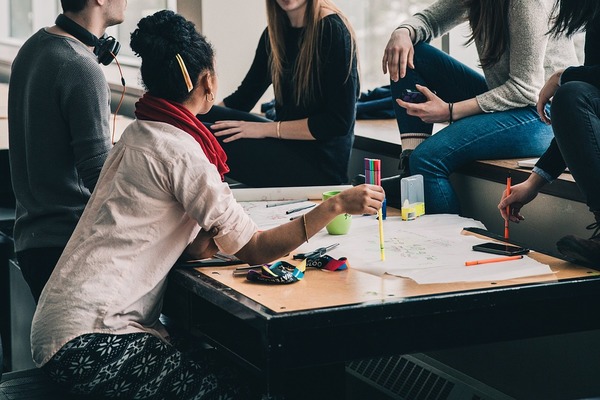
Education as a tool for gender equality
Most of the students recognize stereotypes and prejudice in their social environment.
45 % of the students say that gender stereotypes are widespread among young people, 37 % of them notice that there is social exclusion among young people based on certain characteristics while 40 % of the students say that girls and boys perceive themselves stereotypically. The students (67 %) think that gender equality and respecting differences should be addressed more often during regular education. Iti s important that children and young people develop critical thinking because it enables them to recognize and fight against prejudice. We should also teach them to understand and respect differences, develop tolerance and empathy so that they could empathize with and understand the emotions of those who experience prejudice – Mrs Lukačić points out. This would be a good way to leave prejudices behind.
Sara Višak, 7.a
School Newspaper Group
School Newspaper Adviser: Nikolina Sabolić, prof., dipl. bibl.
Primary School “Đuro Ester” Koprivnica
You adults who dumped garbage in the Stražinec forest, you made us mad!.docx
OŠ Sveti Petar Orehovec - Croatia
You adults who dumped garbage in the Stražinec forest, you made us mad!
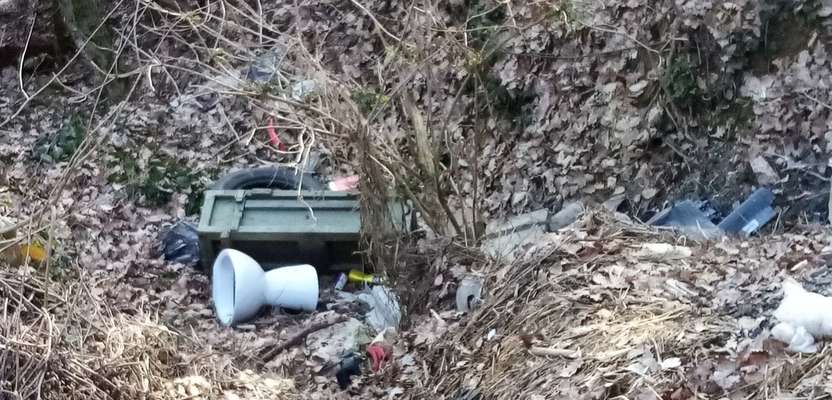
We will continue to photograph wild landfills and send them to our Municipality
On Wednesday 24 February 2021, fourth graders went with our teacher Nataša Tumpak Brčić for a walk. The occasion was a beautiful day, and on a walk, through nature, we always learn something. This time we learned how not to treat nature.
Walking along the forest in the area that our locals call Stražinec, we saw a bunch of discarded garbage. There were plastic shampoo bottles and cleaning products, black bags filled with different types of waste, car tires, and even one toilet bowl. At school, we constantly learn that nature should be treated carefully and protected. By littering the forest, we do not protect nature but pollute it. Some of the discarded substances can harm animals and nature, and this is then passed on to humans. That's what we learn at school, and we'd like grown men who dumped this garbage to know.
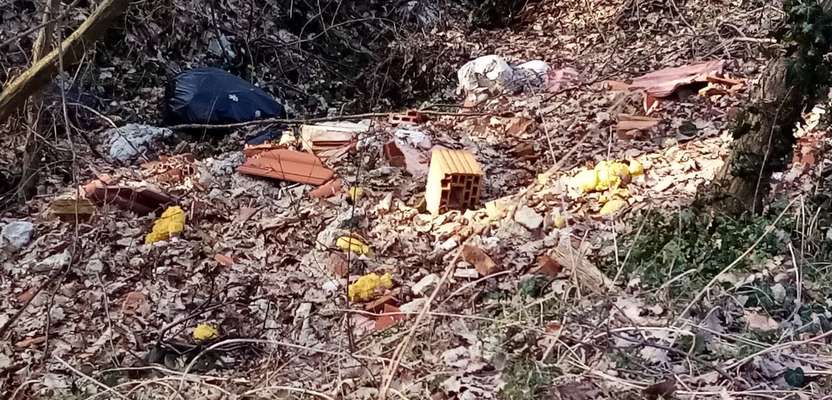
That's why my friend Lea Horvat photographed that trash, and I decided to write this text. We hope that some of our adult locals will also read it. It would be good if those who dumped it there would see it. I want them to know that they offended me and my classmates. We know that garbage is taken from our household every two weeks by the Križevci Utility Company. We also know that the utility company once a year disposes of bulky waste from our households. All they have to do is call them and ask them to dispose of the waste properly.
So why do some of our irresponsible residents feel the need to dump garbage in the woods? Is it easier for them to throw garbage in the woods than wait for utility workers to drive it away? I don't know if they learned at school about nature protection, but if they didn't, let them listen to their children. We would like something to change about these inappropriate littering habits, so we decided to keep taking pictures and write about it. We also decided to send the photos to our municipality in the hope that they would do something to change it. /Ema Pacur, 4th grade; photo: Lea Horvat, 4th grade/
The original article is published in the school online digital newspaper KLINČEK.
OŠ "Dositej Obradović" Ćićevac - Serbia
For the first time with young people about young people.docx
For the first time with young people about young people
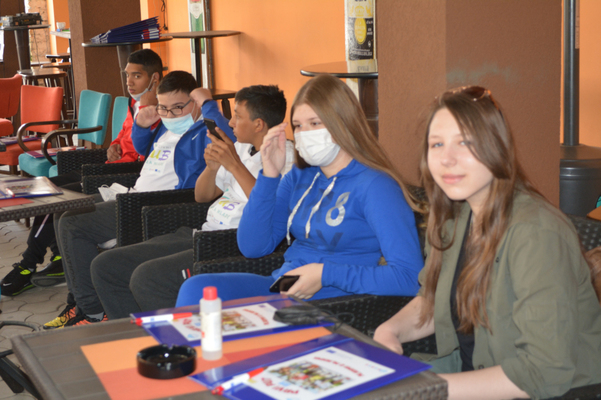
Another activity of the project "First time with young people about young people" was realized, which is implemented by the association Okular from Ćićevac with the Sombor Educational Center and the organization CEKOS from Sonta, through the Erasmus + project co-financed by the European Union - round table.
This round table was attended by 36 participants, 25 young people, and the rest were decision makers, young people who will soon fall into the category of young people, but also young people who are slightly older than 30 years.
Young people from our municipality had the opportunity to have a direct dialogue with decision makers and representatives of institutions through which they go as young people at different ages.
Participants expressed great interest in youth policy and activism through a session on activism in rural areas. At this session, young people talked about how important it is for them that decision makers have a constant dialogue with them. As they say, it is necessary to be interested and talk to young people about their interests. They indicated that they lack sports and cultural events in Ćićevac, informative and educational workshops on topics: entrepreneurship, rights, freedom, discrimination, tolerance, equality and leadership.
Representatives of institutions and institutions supported young people and their work. "Young people in Ćićevac are exceptional. We are very glad that Ćićevac is represented by these young people who break all prejudices about activists from smaller places. You are always ready to help and contribute to communities. We owe you gratitude for growing into such people. We are glad that you represent us in the best light, "said the director of the kindergarten.

The participants noticed that in rural areas we do not appreciate young people enough and that they are leaving because of that. "We need help, in every sense of the word. We want to live with dignity, freedom and satisfaction in our place. We are not happy when we have to leave home, family and friends, but sometimes we see it as the only solution. These types of activities for young people show our desire to stay here and change something. They show our struggle for a better status in a society where we are equal to "adults" and their work "- said one of the participants.
Dialogue was singled out as a solution to all the problems that young people face. They believe that it is necessary to actively conduct a dialogue with decision makers, whether directly or indirectly. Decision-makers need to pay a little more attention to young people and they are ready to do many things and change many situations.
"Our voice is not heard enough. Although we try, what we do is generally not enough. We do not have the opportunity to freely express our opinion and be recognized as initiators of change. That is one of the great obstacles and obstacles for us in our work and activism, "the participants report.
Representatives of institutions and institutions had understanding and together came to a solution with young people who expressed dissatisfaction. "We understand you. We understand that times are different and that everyone has different needs. We understand that sometimes you feel helpless. We are ready to help you and meet you. It should be that way. We all make up this community, not just us "adults" - say decision makers.
The round table was realized successfully. For a small municipality, this is a great success. We should be proud of young people who are always full of ideas, suggestions, ambition and desire for a better tomorrow.
Sanja Ivanovic
OŠ Marije Jurić Zagorke - Zagreb - Croatia
Od kolijevke pa do groba najljepše je đačko doba.docx
From crib to the grave.docx
From crib to the grave, the prettiest is the student’s age
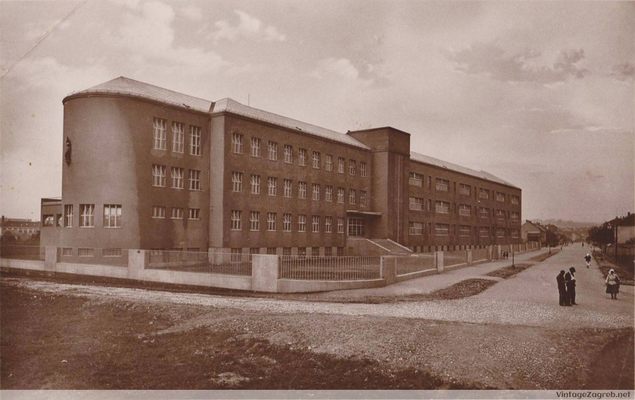
I’m 86 years old and I think that my childhood in war times was more carefree and relaxed than the childhood of these new generations who are picked up by their parents after school and driven around from one activity to another.’
After family Sunday lunch I have talked with my aunt Helana (86) and her sister Adela (71) who is my grandma about their school days so that I could make a great presentation for the monthly project - Grandpas and grandmas in school desks. Grannies sipped their coffee and eagerly answered my questions.
‘I started elementary or public school as it was called back then in 1942, said aunt Helena with reminiscence, while German planes were flying over Zagreb. Alerts were often. During the pre-alert, the bell rang few short times, and during the real alert factory sirens screamed long and loud.’
I found out that she had a little suitcase waiting packed in the hallway with documents, some clothes, and food. Sometimes, due to the war alerts, they had to spend the night in the basement. It was the time of poverty, eggs and milk were hard to get, there were no fridges, but kids were joyful and happy while playing on the streets and going to school.
‘Our public school’ my aunt continued the story ‘was in an unusual place, in the abandoned pub on the corner of Zvonimirova nad Harambašićeva street. We sat on šamrleks, little stools with the hole in the middle that we easily carried with us in and out of school. We didn’t have books, we wrote on little boards with wooden frames. We didn’t get any homework, we just had to listen attentively during the class to our teacher Ljubica. We got the first reading book after the war, after 1945. In school, we sang a lot and we smiled until the alerts made us go home.
Grandma Adel joined in aunt’s Helena story telling me about the games they were playing in the afternoons. They concluded that children nowadays play very little in the fresh air. Everyone just stares at their phones or tablets even when they are together sitting on the bench in the park. They played chase, hide and seek and their favourite game was school, a game where you toss a pebble and jump in the squares on one leg. Everyone brought an apple or a candy from home, they didn’t have chocolate. Whoever won the game of school could eat all the candies as a reward.
Grandma and my aunt are living encyclopedias. They could talk about this for much longer, but mom brought pancakes to the table and the Turkish series they don’t ever skip started on the TV.
I will fill in their interesting stories from student’s ages with family photos and present monthly projects to my friends in class. But first, I’ll have a pancake! /Jan Lipovšek, 6 C; Elementary school Marije Jurić Zagorke/
Scoala Gimnaziala ,,Mihai Eminescu”, Alexandria- Romania
Mass media in the education of young people.docx
Mass media in the education of young people
Today, the classroom is no longer the only place to study. School is no longer the only factor on which the good preparation and information of the child depends. The way of assimilating the life experience, by children and especially of the moral and ethical knowledge, of the models of conduct has also changed.
Following the investigations, it was established that the preferred occupation of younger children is computer games (48%), they often watch TV (36%), listen to music (4%), and the press is read by 12%.
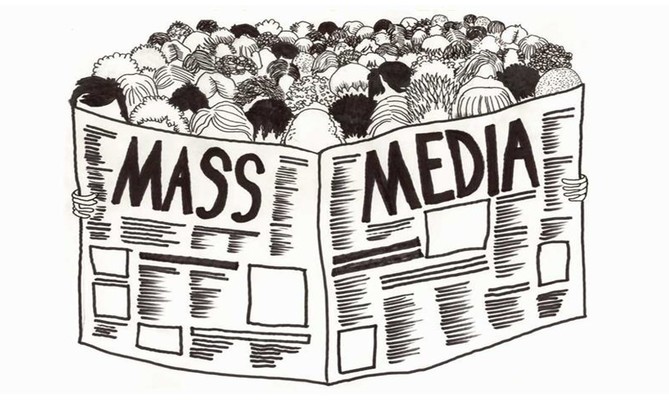
Mass-Media can keep children in a world of information in which the imaginary and the real are confused, creating a surface culture, seductive, but in fact being an illusion.
The proper use of the media requires a certain training of students, parents, but also teachers in this regard.
In front of the school, there is the problem of offering students methods of intellectual work, with procedures and skills to learn and especially to reflect on what they have learned.
The school must, first of all, teach the students how to receive the information from the most varied sources, how to delight, to put in order, to integrate the received information. Thus, there is a need for activities aimed at an education for the media.
If the main objective of the school activity is to prepare the youth for life, for the social and cultural reality, then it is no less important that the whole task is also the main task of preparing the new generations in such a way that they are able to select and use the multitude of values.
Media education refers to the ability to access the media, to understand and critically evolve various aspects of them and their content.
The media tries to satisfy the interest that students show in knowing the great problems that contemporary society faces.
Also, the special objective of several radio and television shows, columns in the pages of magazines and newspapers, is the training of young people, their school and professional orientation, and even the transmission of information related to civic education of young people, the formation of their political culture. .
But if the interest of young people will be oriented towards "inappropriate" information, then wherever they go they will look for this type of information. One of the problems of the internet is the violent computer games, their producers being more interested in the economic side, the profit. Another problem is that these games are often addictive.
Here are two quotes about education and personal development:
"Intelligence plus character - this is the real purpose of education." (Martin Luther King Jr)
"Whoever rules the school, decides on the future, on the tendency of life and on life itself."(Adolph Diesterweg)
Popescu Maria(5A)
https://ziar.sceminescu.ro/via%C8%9Ba-%C8%99colii#h.d0rag1kr8vmn
OŠ ,,IVO ANDRIĆ'' PRANJANI- SERBIA
Poštujemo tradicionalne vrednosti.docx
We respect traditional values.docx
We respect traditional values
Our younger students attended the placed of the Gavrović čardak from the 19th century (1820) on the foundations of the church gate in Pranjani. The čardak found its place next to the wooden church from 1827, which is a cultural asset of great importance. The čardak was built in the household of Momcilo Gavrović in the 19th century. At that time, only the wealthiest hosts had such buildings. It has several rooms, a pantry, a living room, a bedroom and a dining room. Although it represents an immovable cultural good, it shares the fate of many abandoned households in the villages of that area. At that time, there were many more forests in Serbia, and houses were built in the traditional way according to the principles harmonized with nature. They knew the rules according to which wood is cut, what types, ages, heights, how much material is stored, dried and prepared for construction.
In order to prolong the life of this cultural monument of great importance, it was decided to protect it and move it to another location, in the port of the church next to our school.
By restoring the čardaka, a wonderful example of old architecture will be preserved. On it, children will be able to learn how some people made wooden objects with their own hands a long time ago and enabled them to be long-lived.
https://www.skola-pranjani.com/index.php/2014-03-02-15-57-14/2014-03-02-21-11-01/563-p-s-u-r-dici-n-ln-vr-dn-s-i
Катарина Браловић- 6.разред
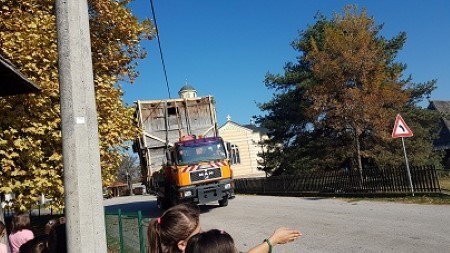


SCOALA GIMNAZIALA NR. 6 SUCEAVA, ROMANIA
Meet and Code.docx
Three online robotics events at Gymnasium School Nr. 6 Suceava, funded by Meet and Code 2020!

The Association of Teachers and Parents of Students from the Gymnasium School Nr. 6 Suceava obtained the financing of 300 Euros for each of the three online robotics events that will take place with the students of the Gymnasium School Nr. 6 Suceava. The projects are addressed to students aged between 6 and 13 years and take place between 5 and 23 October 2020, exclusively online due to the special conditions imposed by the emergence of the new SARS-CoV-2.
Online events "Discover the hidden treasure!", "I want to be the Little Prince!" and "Beet-Bot Bee - the supporter of the preparatory class" won funding through the Meet and Code initiative (https://meet-and-code.org/) supported at European level by the software company SAP. In Romania, the initiative is coordinated for the 4th consecutive year of #AsociatiaTechsoup and supports online technology and programming events aligned with the Europe Code Week mission. #meetandcode #codeEU # SAP4Good
The Techsoup Association, the SAP Company, the German non-profit organization Haus des Stiftens gGmbH and the other partners of the TechSoup Europe network are the organizers of the Meet and Code initiative. In 2020, it supports technology and programming events in the following 35 countries: Romania, Austria, Belgium, Bosnia and Herzegovina, Bulgaria, Croatia, Cyprus, Czech Republic, Denmark, Estonia, Finland, France, Garmania, Greece, Hungary, Ireland , Italy, Kazakhstan, Latvia, Lithuania, Luxembourg, Malta, the Netherlands, Norway, Poland, Portugal, Russia, Serbia, Slovakia, Slovenia, Spain, Sweden, Switzerland, the United Kingdom and Ukraine.
The Meet and Code program is a great opportunity especially for those small non-profit organizations in schools that want to apply for European funding for the first time and want to be part of an international movement.
About the winning projects for the students of the Gymnasium School Nr. 6 Suceava ...
1) The online event "Discover the hidden treasure!" (October 5-9, 2020)
Like discovering a treasure, building a robot for school students, eager to participate in this adventure, is a journey sprinkled with adventures and a rewarding ending.
,, Starting from the educational concept STEM Education, we aim in the project to develop to 6th and 7th grade children knowledge about concepts of physics, electronics and programming, which helps in developing children's imagination and skills in the field of robotics ", declared professor Voinescu Camelia.
,, Students will build and program a line tracking robot capable of discovering a treasure, traversing a route on a map. The robot chassis will be made of plywood, on which we will mount the following components: motors, wheels, battery, ARDUINO development board, sensor line and driver, which will be connected with connector strips. The next step includes the realization of the program, using the C ++ language, it will be compiled using the ARDUINO application, through a laptop, USB cable and an FTDI module. The final stage will consist in testing, adjusting and improving the robot's parameters ", said the volunteer professor Maftean Liviu.
2) The online event "I want to be the Little Prince!" (October 12-16, 2020)
Starting from the book "The Little Prince" by Antoine de Saint-Exupery, we start in the world of robotics, the 5th grade students of the Secondary School No. 6 Suceava being familiar with the main elements of programming.
,, In an inclusive school, children will discover the basic notions and principles of robotics: they will learn how to create technology; will understand, with the help of robots, notions of mathematics, computer science or technology; they will develop their creativity and critical thinking to solve real-world problems. More precisely, during this event there will be activities that will follow: Edison robot programming; use of lines of code; building Edison robots; exploring skills in math, science, critical thinking, engineering, design thinking, etc., "said volunteer professor Roibu Daniela Florentina.
"We will use EdBlocks in our teaching, which is a visual programming language specially designed for the Edison robot, intuitive and fun, ideal for children between the ages of 8 and 12."
(Volunteer teacher, Voinescu Camelia)
3) The online event "Beet-Bot Bee - the supporter of the preparatory class" (October 19-23, 2020)
The youngest students from the Gymnasium School Nr. 6 Suceava will be familiar with the basic elements of programming with the help of the Programmable Educational Robot - Bee-Bot.
"This colorful little robot, easy to operate and friendly will teach children how to follow a sequence of steps and how to estimate results, how to solve problems but also how to have fun! I will introduce students to the functions of the Beet-Bot robot
Bolohan Gabriela, V-A
https://ziare.com/suceava/stiri-actualitate/trei-evenimente-online-de-robotica-la-scoala-gimnaziala-nr-6-suceava-finantate-de-meet-and-code-2020-8256111